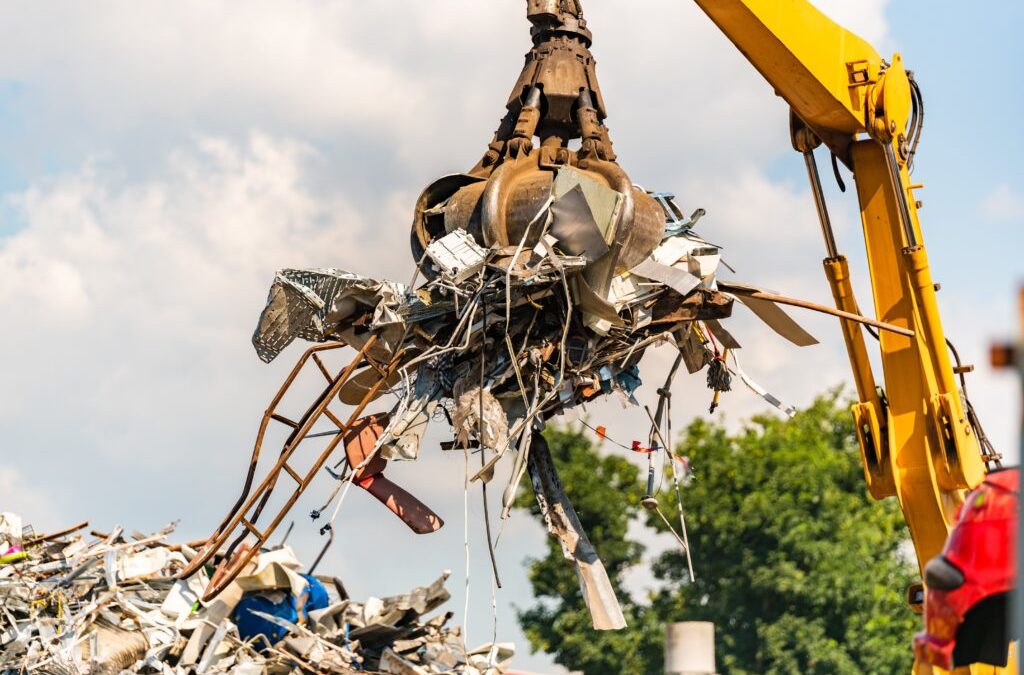How Different Roofing Products Can Be Recycled
It is a lot of work to repair or replace a roof. Jacksonville roofing companies like Cache Roofing are here to help you decide what to do. One of the most difficult parts of this process is figuring out what to do with the old roofing materials. Learning how different roofing materials are recycled can help you decide what material to work with next. Some materials are easier and cheaper to discard or recycle than others. For example, asphalt shingles can be recycled, but there are not many recycling locations for this material yet. Metal and tile roofs are easier to recycle.BLOG: Roofing Material And The Environment
Recycling Asphalt Shingle Roofs
Asphalt shingles are the most common roofing material used today. Unfortunately, most of these roofs end up in the landfill when removed. According to the EPA, the U.S. produces between seven and 11 million tons of shingle tear-off waste in a year.
There are a few ways asphalt shingles can be recycled. The trick is to find a recycling location that will accept the shingles. Earth911 has a database with all the locations available in every state. Earth911 explains that asphalt shingles can be broken down and recycled into asphalt for paving roads.
The EPA conducted a study on the different ways asphalt shingles can be recycled for asphalt pavement. The shingles can be broken down and added to hot asphalt mixes, warm asphalt mixes and cold asphalt for patching, according to the study. The study found some profound benefits to the recycled or reclaimed asphalt shingles:
“Asphalt shingle recycling not only reduces the requirement for the virgin materials that the shingles are replacing such as binder and aggregate in the asphalt pavement market, but also reduces the use of landfill space. Shingle recycling may also reduce the emission of potentially hazardous components associated with the mining, production, and transport of virgin materials used in the manufacture of binder and aggregates,” the study states.
Recycling Metal Roofs
Metal roofs are one of the easiest roofs to recycle, and most metal roofs already have some recycled or reclaimed metal elements. Metal roofing companies have been using recycled metals in their panels for years.
Gulf Coast Supply is a recommended metal roofing manufacturer Cache Roofing, a leading roofing company in Jacksonville, Fla., uses for their metal roofs. Gulf Coast Supply says most aluminum panels used “are typically produced from 90% or more recycled content.” Gulf Coast Supply adds that steel panels “usually contain at least 10% recycled content.” According to Gulf Coast Supply, “both types of metal will last for decades and are 100% recyclable after use.”
Green Builder Media spoke to experts in the roofing manufacturing field about the recyclability of different roofing materials. The senior associate architect and specifier at NBBJ — Christopher Dixon told Green Builder Media that while the recycled content used in metal roofs is sometimes low, the “metal’s high level of recyclability, combined with a long service life” is what makes metal roofs a “good sustainable choice.”
Dixon was quoted in the Green Builder Media article explaining that commonly used roofing metals such as “steel, aluminum, copper and zinc” are “highly sought-after materials” that have a high reclamation value, meaning “these valuable materials do not make it to the landfill.”

Recycling Tile Roofs
There are many types of tile roofs and all have different recycling capabilities. Clay and concrete tiles both can be recycled. Synthetic tiles can be recycled, but there are many variations between different synthetic blends, and therefore their recyclability also varies. Click Here to Read More About Synthetic Roofs
Clay tiles are manufactured with natural materials that can be easily recycled. The Construction Specifier, a peer-reviewed U.S. publication focusing on the construction industry, says that when clay tiles are salvaged they can be used on another roof, “unlike most other building materials.” “This is perhaps the most pure version of the cradle to cradle lifecycle where products are repurposed for new use,” the article says.
Jacksonville roofing company Cache Roofing uses the clay tile manufacturer Ludowici, a leading manufacturer in clay tiles. Ludowici explains that their tiles are made with “locally-sourced, natural materials (clay and water) through a unique process which creates no waste.” This also means their tiles are “100% recyclable.” The company explains different ways the tiles can be reused from creating a “beautiful vintage roof” to being completely “recycled and used as filler and filter components for future construction.”
Eagle Roofing is another manufacturer Cache Roofing in Jacksonville relies on for sustainable, durable tiles. Eagle Roofing explains that, like clay tiles, concrete roof tiles are also produced from “all-natural products that are fully recyclable and biodegradable at the end of their lifespan”
The Construction Specifier also talks about other ways different materials can be recycled besides being used in the roofing industry. For instance, clay tiles can be “crushed down” and used to build baseball fields.

Recycling Roofing Materials For a More Sustainable Future
The most important consideration is how to keep roofing materials from ending up in a landfill. All roofing products are recyclable. Whether you decide to build with the natural and mineral-based concrete or clay tile, the easily recyclable aluminum or steel metal panels or the most commonly used asphalt shingles — you can choose to recycle the products at their end-of-life cycle.
Cache Roofing in Jacksonville partners with the best manufacturers that provide quality, environmentally-friendly, recyclable products. Whatever product you decide to use, Cache Roofing can help you through the process.


Recent Comments